Featured
Over 13k foreigners leave Maldives over coronavirus fears

Maldives has repatriated more than 13,000 foreigners — mostly migrant workers — stranded in the island nation due to the travel restrictions stemming from the global coronavirus pandemic.
Figures released by the immigration department on Saturday show that the most number of evacuees — 10,879 — were from Asian countries: 3,3384 Indias, 2,924 Bangladeshis, 808 Indonesians, 350 Thais, 336 Filipinos and 291 Sri Lankans.
European countries have also evacuated 2,091 of their citizens from the Maldives.
Another 41 that belong to African nations have also left the Maldives.
Bangladeshis and Indians make up the majority of the migrant worker population in Maldives.
They have been disproportionately affected by the coronavirus outbreak in the Maldives. Bangladeshi workers make up the majority of virus cases in country.
The confirmed local transmission clusters in the Maldives now include 1,065 Bangladeshis, 701 Maldivians, 191 Indians, 26 Nepalis, 11 Sri Lankans and three Pakistanis.
Authorities managed to mitigate the spread of the virus and the Covid-19 respiratory disease it causes amongst the Maldives’ citizens and residents early on by closing the Indian Ocean tourist paradise’s borders, earning praise from the World Health Organisation.
But the disease later spread rapidly within the large migrant worker community in capital Male. Authorities have ramped up relocating workers from the cramped up dormitories in one of the world’s most densely populated cities to temporary accommodation units.
An estimated 63,000 foreign nationals work in the Maldives illegally out of a migrant worker population close to 145,000.
Foreign workers in the Maldives, predominantly Bangladeshi and Indian men, are subjected to practices indicative of forced labour, including fraudulent recruitment, confiscation of identity and travel documents, withholding or non-payment of wages, and debt bondage.
As most migrant workers live in extremely poor conditions, a widespread outbreak amongst them could lead to large virus clusters, overwhelming the country’s already under staffed and strained healthcare system and making it harder for authorities to contain the spread of the virus.
On March 8, Maldives reported its first cases of the novel coronavirus, as two hotel employees tested positive for Covid-19 at a luxury resort in the archipelago.
Eighteen more cases — all foreigners working or staying resorts and liveaboard vessels except five Maldivians who had returned from abroad — were later identified.
A six-case cluster of locals, detected in capital Male on April 15, confirmed community transmission of the coronavirus. Several more clusters have since been identified, bringing the total number of confirmed case in the Maldives to 2,013.
Eight deaths have been reported and 1,217 have made full recoveries.
The Maldives announced a state of public health emergency on March 12, the first such declaration under a recent public health protection law.
The public health emergency declaration has allowed the government to introduce a series of unprecedented restrictive and social distancing measures, including stay-at-home orders in capital Male and its suburbs, a ban on inter-island transport and public gatherings across the country, and a nationwide closing of government offices, schools, colleges and universities.
Non-essential services and public places in the capital such as gyms, cinemas and parks have also been shut.
Restaurants and cafes in the capital have been asked to stop dine-in service and switch to takeaway and delivery.
A nationwide shutdown of all guesthouses, city hotels and spa facilities located on inhabited islands is also in effect.
The restrictions in the capital region are now being eased in phases, with the second phase kicking in from Monday and lasting at least until June end.
Cooking
Patina Maldives hosts Chef Shannon Bennett for exclusive April residency

From 1 to 5 April 2026, Patina Maldives, Fari Islands will host Shannon Bennett, one of Australia’s most recognised culinary figures and the creative force behind Belongil. The residency brings together a chef known for shaping dining as an emotional and reflective experience with a destination defined by perspective, creativity and purpose.
Bennett’s career extends beyond traditional notions of cooking. Through projects such as Vue de Monde and Belongil, he has explored dining as a medium for memory, connection and emotion, placing emphasis on experience rather than consumption. His approach centres on creating moments that remain with guests long after the meal has ended.
At Patina Maldives, the residency represents a convergence of shared values. Over five nights, guests are invited to take part in a limited series of dining experiences shaped by intention, curiosity and a sense of place. Rather than recreating Belongil in another setting, the programme evolves its philosophy, drawing inspiration from the natural rhythm and clarity of the Maldivian environment.
Commenting on the collaboration, Bennett said Belongil was conceived as more than a place to eat, but as a space for ideas, connection and lasting moments. He noted that Patina Maldives reflects a similar sense of purpose, adding that bringing his work into the island setting offered an opportunity to create experiences that feel grounded, honest and meaningful.
Patina Maldives continues to develop its identity by providing a platform for global creative voices to shape new conversations and perspectives. The residency with Bennett aligns with this approach, positioning cuisine as one element within a broader cultural and experiential narrative.
Tom Bray, Director of Lifestyle at Patina Maldives, said the resort exists to bring people closer to ideas, creativity and self-discovery. He added that welcoming Bennett reflects this philosophy, describing the residency as an experience designed to shift perspective rather than focus solely on gastronomy.
The residency is presented as an experience defined by intention rather than spectacle. Taking place over five nights on a single island, it brings together Patina Maldives and one of the culinary world’s most reflective minds for a programme shaped by presence, purpose and a sense of moment that cannot be replicated in the same way again.
Featured
You & Me Maldives unveils curated Premium All Inclusive programme
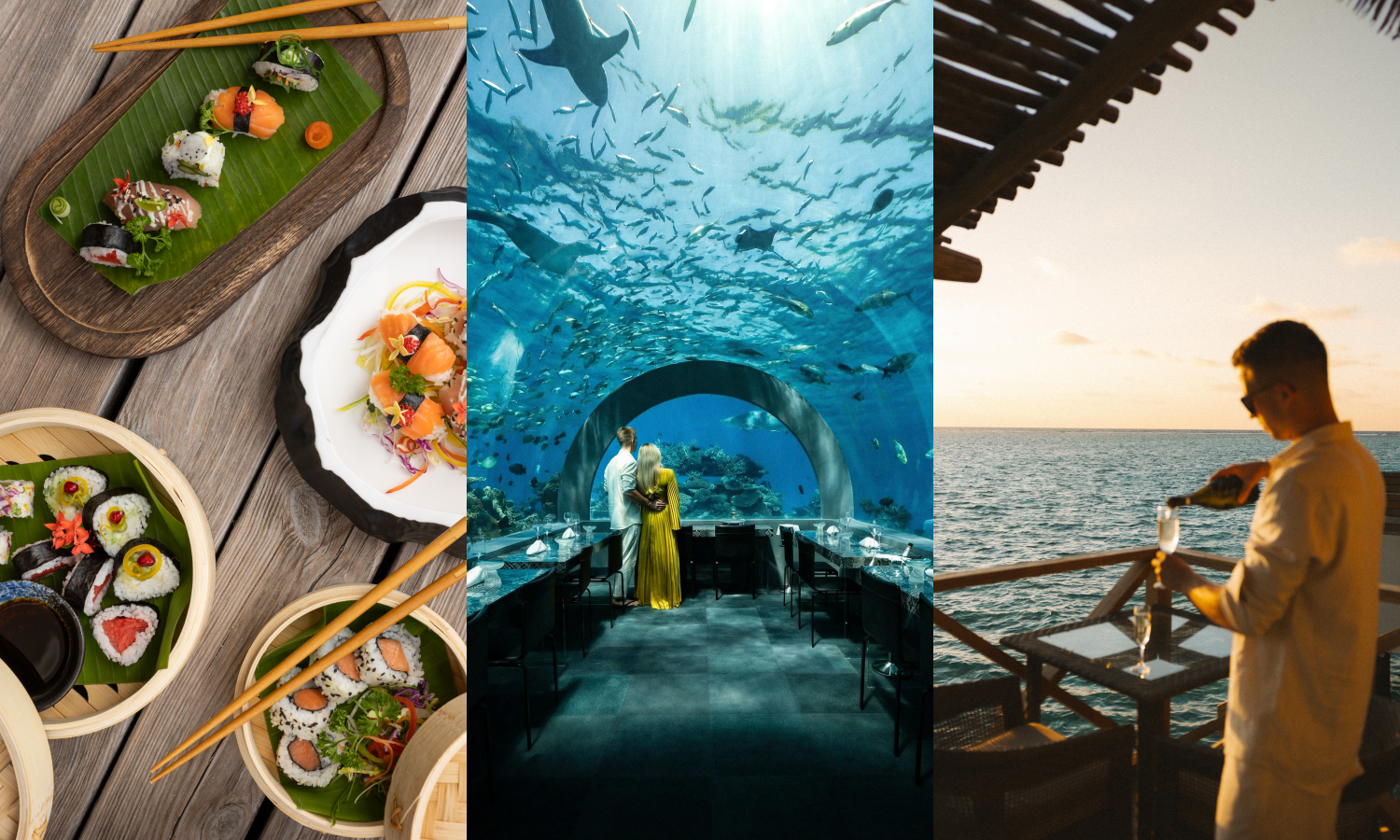
You & Me Maldives, the adults-only luxury retreat under The Cocoon Collection, has announced the launch of its new Premium All Inclusive experience, aimed at enhancing island stays through a more seamless and comprehensive offering in the Indian Ocean.
The Premium All Inclusive experience is designed to begin from the point of arrival. Guests receive complimentary access to The Cocoon Collection Lounge at the seaplane terminal at Velana International Airport, where services are provided to ensure a smooth transition before the journey to the resort.
On arrival at the island, guests are welcomed in their villas with a chilled bottle of sparkling wine and a selection of canapés. The Premium All Inclusive plan includes unlimited premium beverages by the glass, featuring a curated range of wines, signature cocktails, top-shelf spirits, international beers and non-alcoholic options. The in-villa minibar is replenished daily with soft drinks, international beers, red and white wines, as well as assorted snacks. For stays of five nights or more, guests also receive two bottles of premium liquor from a selected list, provided once during the stay.
The experience further includes a range of activities. Guests staying a minimum of three nights are offered one sunset cruise and one snorkelling excursion per stay, while those staying seven nights or more are entitled to a catamaran cruise. Unlimited use of snorkelling equipment and non-motorised water sports, including canoeing, kayaking and paddle boarding, is also included, subject to weather conditions.
Dining forms a central part of the Premium All Inclusive concept. Guests can enjoy three themed dining evenings, including a seafood barbecue under the stars featuring prawns, lobster and oysters. For stays of five nights or more, guests may also take part in a complimentary group cooking class, with a choice between ethnic or Italian cuisine, led by the resort’s culinary team.
Wellness offerings are also incorporated into the programme, with guests able to participate in up to three complimentary sunrise yoga sessions per stay, subject to availability.
The introduction of the Premium All Inclusive experience reflects the resort’s focus on personalised service and carefully curated stays. The offering is positioned to appeal to couples seeking relaxation, romance or activity-led experiences within an adults-only island setting.
Featured
Eid celebrations at SO/ Maldives blend Arabic tradition and Maldivian culture

SO/ Maldives is inviting global travellers this season to reimagine Eid not merely as a holiday, but as an immersive island escape. Located just 15 minutes by speedboat from Malé, the fashion-forward private island retreat sets the stage for a celebration where cultural heritage, contemporary luxury and tropical glamour come together.
At the centre of the festivities is an authentic culinary experience at Hadaba, the resort’s award-winning Arabic restaurant. Guests are offered Levantine flavours, artisanal mezze and traditional recipes presented with a modern approach, creating a setting for shared dining and celebration. As part of the resort’s dine-around concept, Hadaba can be included in a wider culinary journey across the island, allowing guests to experience Arabic cuisine alongside the resort’s other dining venues.
As evening falls, celebrations move to Lazuli Beach Club, where shisha rituals and Arabic-inspired refreshments are served in a beachfront setting. Traditional performances are complemented by Maldivian Boduberu drumming and fire dance displays, creating a cultural programme designed to appeal to international travellers seeking meaningful experiences.
Across the island, Eid is marked through a series of curated activities aimed at encouraging connection and creativity. Cultural workshops, including palm-leaf artistry and henna sessions, offer opportunities to explore heritage, while younger guests are engaged through themed crafts, interactive games and sweet treat decorating. The overall atmosphere remains celebratory while maintaining a relaxed pace that reflects the resort’s character.
Beyond the festive programme, the resort positions the long weekend as a fully immersive island retreat. Guests stay in beach and overwater villas featuring private pools and ocean views, with interiors inspired by high fashion. Time is spent between spa treatments, lagoon activities, beach club experiences and sunset dining, balancing celebration with seclusion.
To mark the season, the resort has introduced two limited-time stay offers. The One Night on Us offer provides savings of 33 per cent on stays of three nights or more, along with daily breakfast, complimentary transfers and spa privileges. The Soo Summer package offers preferential rates combined with spa experiences, curated dining inclusions and additional benefits for water villa stays.
Welcoming travellers from Europe, Asia, the Middle East and beyond, the resort presents Eid as a global celebration where Arabic traditions, Maldivian culture and contemporary design are brought together. This season, guests are invited to exchange routine for island surroundings and experience Eid through a redefined island perspective.
-
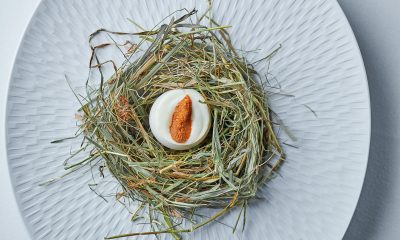
 Cooking1 week ago
Cooking1 week agoA spring of flavours: Nowruz dining series at JW Marriott Maldives Resort & Spa
-
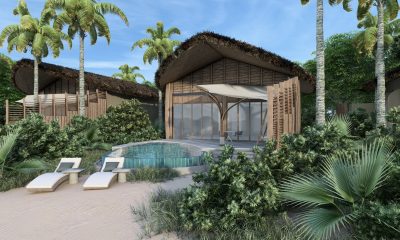
 News1 week ago
News1 week agoPulse Hotels & Resorts unveils Aura Maldives, a mindful luxury sanctuary
-
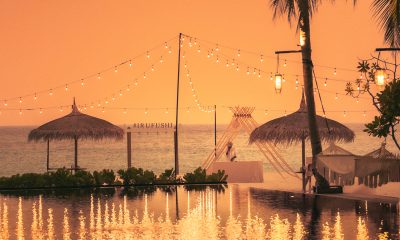
 News1 week ago
News1 week agoSun Siyam Iru Fushi sets new nenchmark with 24 Hour Premium All Inclusive Dine Around
-
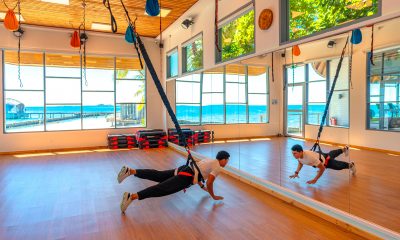
 Fitness1 week ago
Fitness1 week agoOUTRIGGER Maldives Maafushivaru launches expanded wellness programming for 2026
-
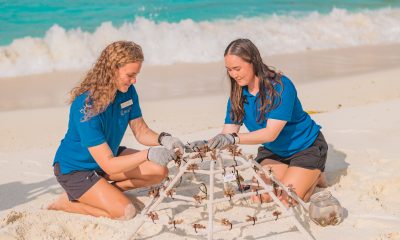
 Action1 week ago
Action1 week agoSheraton Maldives Full Moon celebrates sixth anniversary of Reefscapers collaboration
-
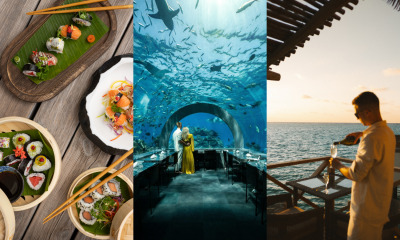
 Featured1 week ago
Featured1 week agoYou & Me Maldives unveils curated Premium All Inclusive programme
-
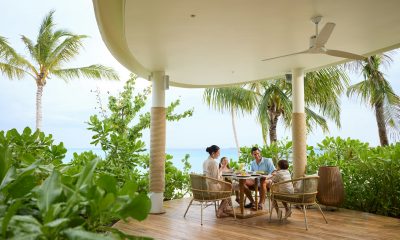
 Awards6 days ago
Awards6 days agoCentara Mirage Lagoon Maldives named Luxury Family Friendly Resort of the Year
-
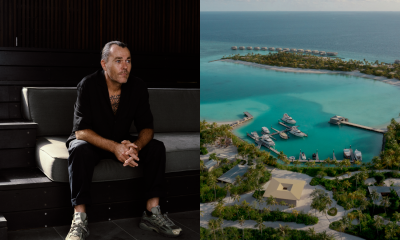
 Cooking1 week ago
Cooking1 week agoPatina Maldives hosts Chef Shannon Bennett for exclusive April residency








